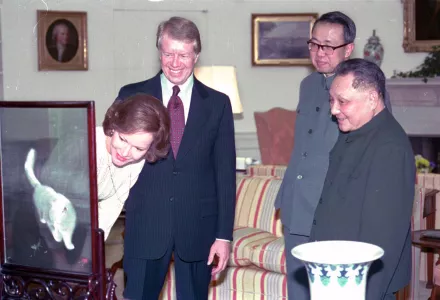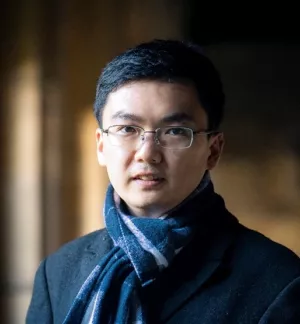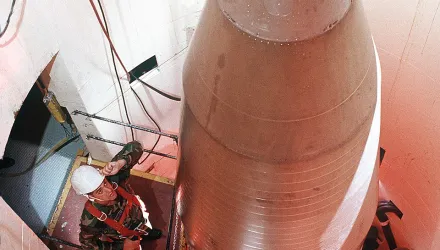Speaker: Sheng Peng, Ernest May Fellow in History & Policy, International Security Program
This presentation is on a multi-archival international history project that focuses on the Jimmy Carter administration’s intricate relations with both competing regimes of China—the People’s Republic of China [PRC] in the Mainland and the Republic of China [ROC] in Taiwan. It specifically examines the pivotal moment of the late 1970s Cold War, when the U.S.-China rapprochement set in motion during the Kissinger era turned into a full-fledged anti-Soviet military cooperation at the expense of Taiwan. This realignment fundamentally altered the multi-layered landscapes of the Cold War, with far-reaching consequences that contributed to the collapse of détente, invited the transfer of military and dual-use technology from U.S. allies to the PRC, and set the stage for Taiwan’s return to the center of U.S. domestic political debate on China.
Using many previously unexplored primary sources from mainland China, Taiwan, the United States, France, the United Kingdom, Germany, and Russia, the speaker's book delved into the fascinating personal histories and detailed intra-governmental debates in major world capitals that shaped the making of, and responses to, President Jimmy Carter’s China policy. This study demonstrated that the Carter Administration's efforts to maintain a balanced relationship with both the PRC and the ROC have been significantly complicated by the two competing Chinese regimes’ ambitions to actively participate in multilateral strategic, scientific & technological, and ideological competitions in the global Cold War.
In contrast, the U.S. policy of simultaneously arming mainland China and Taiwan created a paradoxical situation that would have long-lasting implications for regional stability and future U.S. administrations’ continued difficulties in managing their relations with the two competing Chinese regimes long beyond the end of the Cold War.
Admittance is on a first come–first served basis. Tea and Coffee Provided.






